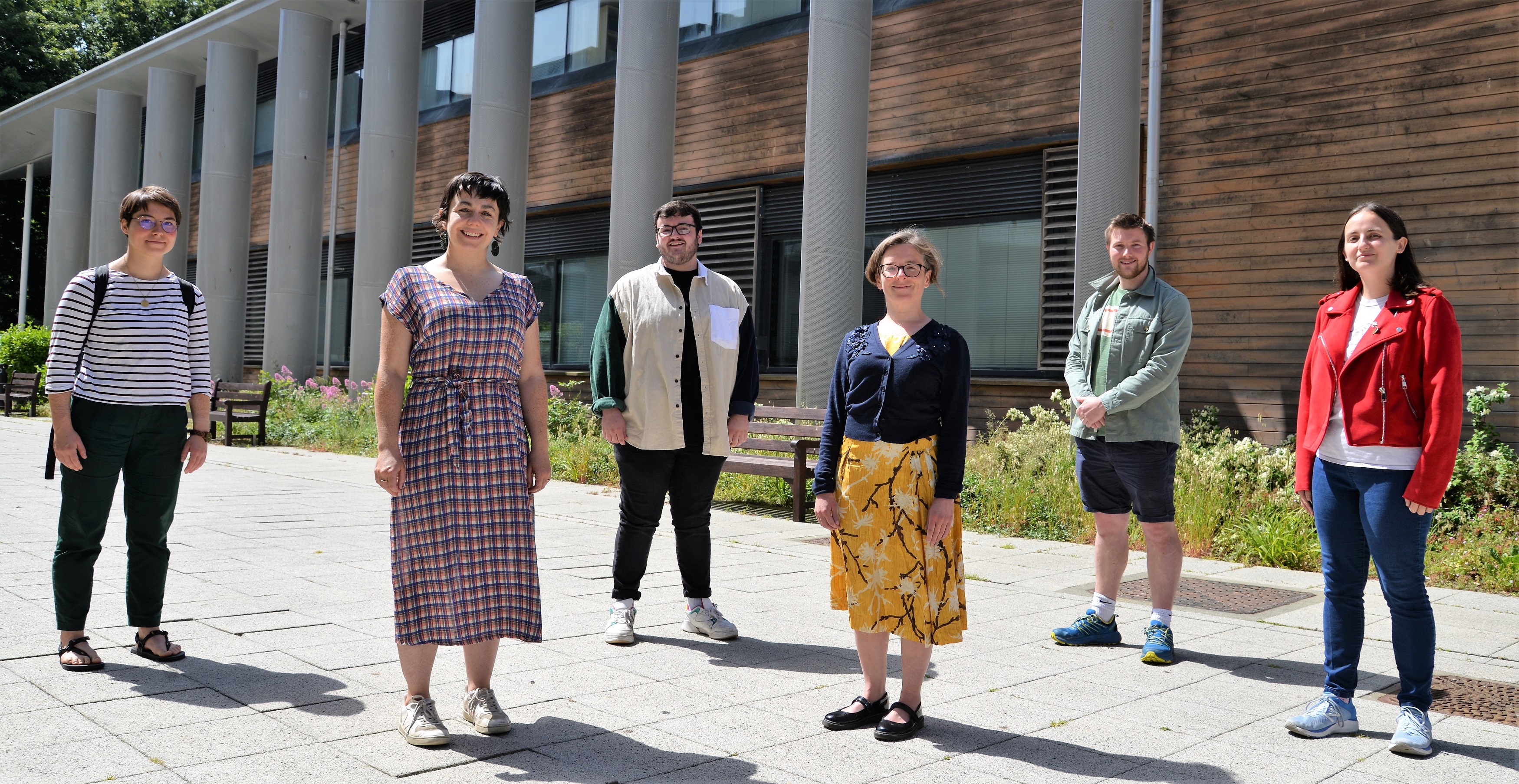Harnessing the power of theatre to explore the impact of translation on court proceedings

Left to right: Leonie Schwede, Department of Law and Criminology; Rhiannon Williams, facilitator; Dr Catrin Fflûr Huws, Department of Law and Criminology; William Kingshott, actor who played the role of the claimant; Owain Rhys James, barrister; and Non Humphries, PhD student
11 July 2022
An innovative fusion of theatre and law has been adopted as a research tool in a project by Aberystwyth University academics exploring the influence of simultaneous translation on court proceedings.
The pioneering approach has been adopted by Dr Catrin Fflûr Huws, a Senior Lecturer in the Department of Law and Criminology, who is interested in the engagement between theatre and law.
Dr Huws is the lead researcher on a study which is considering the effect, significance and influence of simultaneous translation in court cases, particularly the challenges and benefits to interpretation services in instances when court proceedings are held remotely.
As part of the study, a moot court was held at the University on Monday 20 June 2022.
The simulation involved the cross-examination of the claimant (an actor) by a barrister through an interpreter, following a script of a real-life court hearing.
For the purposes of the moot court, the barrister, the claimant and the interpreter were all in different locations, in order to emulate a remote court case. A mock jury was formed of members of the public.
The event used an interactive theatre technique known as Forum Theatre, which uses theatre as a tool for challenging and changing preconceptions. Audience interaction is encouraged and different options for dealing with a problem or issue are explored through participation.
Dr Catrin Fflûr Huws explains: “In a court case, effective multilingual communication is wholly reliant on the role of the translator. And yet the importance of interpretation is not adequately understood.
“In our moot court the mock jury listened to an intense cross-examination of a claimant by a barrister, both with and without simultaneous translation. Their reactions, opinions and feelings were then analysed, facilitated by a director. This allows us to ascertain the jury’s response and understanding of a claimant with an interpreter, and a claimant without an interpreter, therefore establishing the effect and impact of the interpreter.”
Other Aberystwyth academics involved in the study are Dr Rhianedd Jewell, a Senior Lecturer in Professional Welsh with expertise in translation studies and professional translation, and Psychology lecturer Dr Hanna Binks who specialises in language acquisition and the psychology of bilingualism. Non Humphries, a PhD student within the Department of Welsh and Celtic Studies is also part of the investigation team.
The research work has been funded by Aberystwyth University’s allocation of the Research Wales Innovation Fund from the Higher Education Funding Council for Wales.
Dr Rhianedd Jewell said: “This research is allowing us to explore how current practices might be changed for the better. Although the focus of this research is on Welsh-English bilingualism in court proceedings, many of the findings will also be relevant in other contexts in which court hearings are multilingual, including British Sign Language.”
The outcome of the research will be the subject of an online conference to be held on 21 July 2022.
The conference will be of interest not only to academics from the fields of Psychology, Translation Studies and Linguistics, Law, Criminology and Politics, but also to people working in the fields of justice and criminal justice, law practitioners, the police and translation services.
To register to attend the conference please visit: https://TheFutureOfRemoteCourtHearings.eventbrite.com



